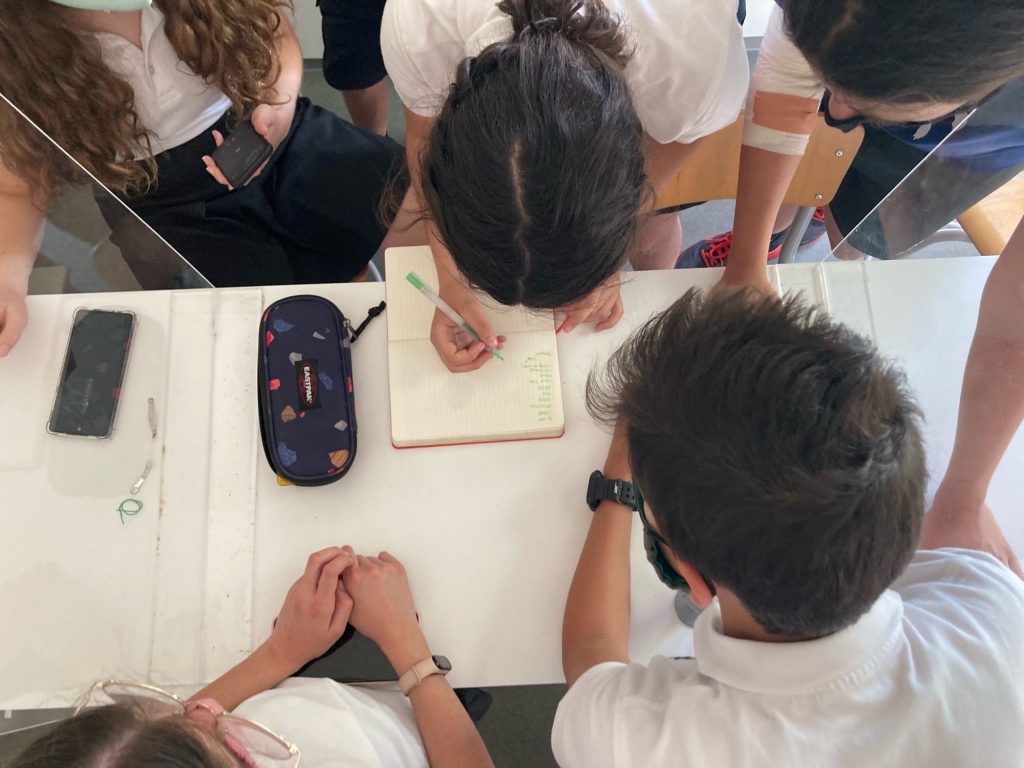Let us begin by stating the obvious: there’s no future without education and there’s no good project without evaluation. With the SALL project, the Research in Science and Technology Education Group from the University of Cyprus (ReSciTEG) implemented a framework to turn evaluation into an engine for innovation. It’s an unusual process, especially in the field of Open Schooling where scientific literature is in its infancy. This action research approach, where implementation-evaluation cycles are repeated, will contribute to facilitate the effective application of the SALL methodology.
ReSciTEG unveiled the first results of the qualitative and quantitative evaluation they are conducting. The evaluation is twofold: it analyses the impact of the SALL methodology on individuals and organisations involved and studies the transferability and adaptation mechanisms that might facilitate its wider adoption. Some of the results might surprise you, so keep reading!
The multiple pathways to open schools
The SALL methodology relies on a roadmap for schools, describing step by step how to set up and develop a living lab project with students and the school’s local community to tackle a real issue. Flexible and adaptable, this methodology has been implemented by 100+ teachers across Europe and adapted to their own very specific contexts.
The evaluation revealed that among these various adaptations, five different pathways were followed by the participants when implementing a living lab project. What differs? The level of openness at the planning stages. Some teachers adopted “open exploration pathways” during which students were offered a lot of freedom to decide on the topic they wanted to tackle and what solutions to design in their living lab. Others provided some pre-defined aspects to students: the thematic area, the topic and/or solution that students had to develop during their living-lab project.
In the end, all the pathways facilitate the shift toward Open Schooling but at a different pace and depending on the experience and the confidence schools had in such approaches. Yvoni Pavlou of ReSciTEG reminds us that it’s a whole new culture that needs to be infused at different levels. Achieving the highest level of openness and transforming schools into genuine open educational places take time.
The decision to go for one pathway or another was based on different conditions such as restrictions posed by the curriculum, workload, prior knowledge and experience, ongoing projects, etc. And this fundamental choice has an impact on what the SALL approach brings to students. Put simply, the more open the pathway is the stronger motivation and engagement among students are. Students need a good balance between freedom and guidance to make the most of the living lab project and develop appetence for science and civic engagement.
Developing 21st-century skills and making STEM more relevant
Supporting students to develop 21st-century skills and to raise their awareness of science are the main ambitions of the Schools As Living Labs project. 600+ students took part in the pilot phase of the SALL project and their science attitudes and civic engagement were scrutinized by the ReSciTEG.
After having been involved in SALL, students tend to consider learning science as a means to achieve a career more. They associate learning science with getting a good job and are more likely to consider using science problem-solving skills in their career. Students also show greater control over their learning of science. They were more likely to use strategies to learn well or to put effort into learning science. Both dimensions testify that the SALL project has a positive impact on the way students consider science.
On the other end, and much to Yvoni’s surprise, students didn’t show more interest in being active in the life of the community, to help shape the community’s future or to improve conditions for others. Even though students have collaborated with societal actors – and for some at a high level of engagement – this interaction was in most countries very restricted due to covid-19. Hopefully, the coming years will be more indulgent with in-person interactions and civic engagement might increase.
Building and enhancing a school community
Another key aspect of the SALL project is to reposition the school at the centre of the community’s well-being by developing or enhancing collaboration with societal actors. Even though teachers felt first unsecured in their capacity to collaborate with societal actors and foresaw a lack of community support, these challenges didn’t hold out. The schools succeeded in widening their network and managed to engage societal actors, and for 30% of them at a co-construction level where societal actors aren’t only invited as external experts (e.g. to give a lecture or to provide materials) but actively collaborate with students and teachers in implementing a living lab project.
144 societal actors from different fields and backgrounds (families, businesses, local government, NGO’s, researchers, etc.) got engaged and felt motivated by the idea of bringing their expertise to inspire and co-operate with students, teachers, and schools to make positive changes in the community. They also developed pedagogical knowledge and gained experience in schools’ operation which offset their initial apprehensions. In the end, both teachers and societal actors felt supported in this process. The first ones by their peers and management and the second ones by the school.
The Open Schooling philosophy is progressively spreading and is reaching several levels of the school community. To support this shift, the SALL methodology seems to be a promising approach. The in-depth analysis led by ReSciTEG provided insights to slightly refine the SALL methodology and identified successful practices that will be employed during the wider implementations of the SALL project, now expanding to 400+ schools across Europe!
WANT TO BE INVOLVED IN OPEN SCHOOLING?
More than 50 schools across Europe are already implementing the Schools As Living Labs methodology, transforming their teaching approach to become open-education spaces serving the society. Our next step is to expand this community across 10 countries and 400+ schools: Croatia, Cyprus, Estonia, France, Greece, Israel, Portugal, Serbia, Spain, The Netherlands. If you want to join this open schooling movement, leave us your contact details and our national coordinators will contact you (hello@schoolsaslivinglabs.eu)

